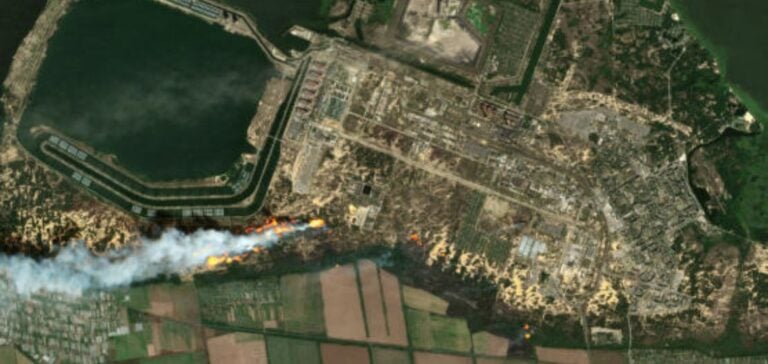Fighting in Ukraine and Russia raises major nuclear safety concerns.
The Director General of the International Atomic Energy Agency (IAEA), Rafael Grossi, expresses his concerns about the Kursk power plant in Russia and the Zaporijjia power plant in Ukraine.
These plants are located in areas of intense military confrontation, and their safety is under threat.
At a meeting in Kaliningrad, Rafael Grossi described the situation at the Kursk plant as “alarming”.
The two reactors currently operating on this site have no specific protection against possible strikes or accidents linked to the conflict.
Located in a region where Ukrainian forces led an offensive in early August, the Kursk plant could be directly affected by hostilities.
Grossi insists on the need for heightened vigilance and rigorous management to avoid serious incidents.
Direct threats to strategic infrastructures
The Russian-controlled Zaporijjia power plant remains the focus of concern.
Recent damage to a cooling tower has highlighted the site’s vulnerability.
While Moscow accuses Ukraine of orchestrating the attack via drones, Kiev denies any involvement.
This facility, the largest in Europe, is regularly targeted, with each side blaming the other for incidents.
The stakes are clear: guaranteeing nuclear safety in a context of conflict requires precise and rigorous management.
The Kursk and Zaporizhia facilities are critical infrastructures whose safety is crucial not only for the countries in conflict, but also for the entire European region.
International Coordination and Follow-up
Rafael Grossi calls for continuous monitoring of nuclear sites in conflict zones.
He asserts that power plants must never become military targets, insisting on compliance with international conventions on the subject.
Discussions with Rosatom’s Alexei Likhatchev show agreement on the possibility of sending IAEA experts to sites in the event of an immediate threat.
The situation calls for coordinated action and total transparency between the parties involved.
The slightest failure in communication or safety could have serious consequences for the environment and the population.
The Kursk plant, although “operating normally” according to Rosatom, remains under strict observation by the IAEA.
Any change in the fighting near these facilities will require rapid intervention.
Risk Management and Preparedness for Extreme Scenarios
Rapidly changing military situations around these power plants mean that we need to be prepared for extreme crisis scenarios.
Safety protocols need to be adapted in line with developments in the field.
The IAEA’s role remains central to assessing threats in real time and ensuring that appropriate measures are put in place.
Rafael Grossi’s recent announcements on the situation at Kursk and Zaporizhjia underline the need for ongoing dialogue and enhanced cooperation between the IAEA and local authorities.
The current geopolitical context leaves no margin for error.
Nuclear safety in these conflict regions is an urgent priority, requiring ongoing efforts and dedicated resources.






















